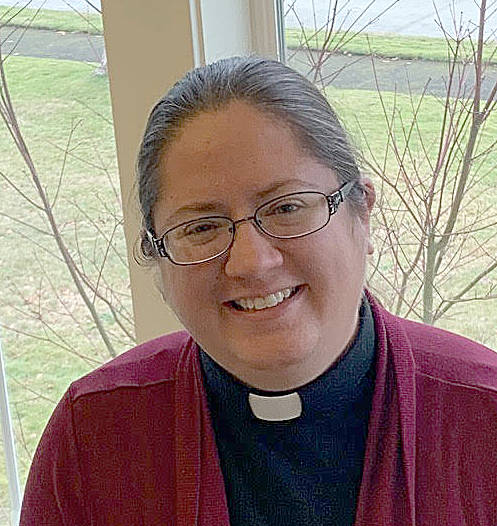By The Rev. Sarah Monroe
Grays Harbor is not unique in its experience of homelessness; every town and city in the United States is faced with an increasing number of people who have no legal place to live.
Before I speak to homelessness per se, I want to make two observations. First, we are a community in grief. I grew up here in the ‘90s as the logging industry crashed. In the following decades, we saw a steep rise in addiction, incarceration, and homelessness.
Grief has many cycles and one of them is anger. If we don’t have a way to express that anger, we can simply turn on each other. I see that happening in this community.
Second, we deal with an intense sense of shame. We are ashamed of our lack of industry and job base, ashamed of our high rates of drug use, ashamed of our unemployment. Shame is not a productive emotion— shame teaches us that we are not worth anything and that we don’t deserve healing. Somehow, we believe that shaming people without jobs or who deal with addiction will change them, even though science and common sense have debunked that myth long ago.
We are at a time in our collective life where we need to learn how to love and care for each other. Not simply individually— no single person can solve their loved ones’ addiction or lack of housing. We need to find ways to heal together as a community. I don’t think we can talk about the crisis of homelessness in our community until we’re willing to actually believe that healing is possible.
Practically, there are two steps in how our community can address this crisis. First, there is enormous, immediate need. There are many ways to count the number of people on the street— DSHS says there are 1,000 people in Aberdeen who are either homeless or at imminent risk of homelessness. The county health department estimated 500-700 people on the street at any given night in Grays Harbor. In the past several years of ministry to people experiencing homelessness in this county, I have buried or lost 45 people.
I am grateful that the city of Aberdeen stepped up to create a sanctioned tent city. Not because I or they believe this is an adequate solution, but simply because it creates a legal place for people to be and some stability to move forward. All such harm reduction measures save lives. That is the first and most important goal. People have a constitutional right to life and none of us should be burying 24 year olds of pneumonia. All the meal programs, the several cold weather shelters, the church led family shelter with Family Promise, and even the talk of putting tiny houses on church or city property are all paths forward.
Of course, simply supporting people’s basic survival is not a long term solution. I believe that this community is capable of supporting real solutions, if only people would be willing to turn their anger toward all the things that are killing us instead of toward the people who are dying.
While not everyone who is homeless is addicted and not everyone addicted is homeless, we still need to talk about our high rates of addiction. We have one of the highest rates of opiate overdose deaths in the state (a number falling due to the distribution of Narcan), but we have no detox centers in the county that accept Medicaid. Any of you who have tried to access detox or treatment services know it is a long and complicated process. I have buried people waiting for treatment. What if Aberdeen or Grays Harbor imagined itself, not as a capital of drug use, but as a capital of healing? What if, instead of shaming people, we brought in world class, trauma informed treatment?
One excellent step in the right direction in this community is the creation of a drug court, a diversion program that is offered to people arrested on drug related charges. I know a number of people who have found amazing success getting clean and housed through this program.
We also need housing. Many of us, even those of us with jobs or income, have difficulty finding a decent place to live. Even people who do qualify for housing dollars through federal programs like the HEN program or through CCAP, can spend months looking for a place— or never find one. We need to find feasible ways to build housing; a difficult task in a community where a lot of our land is on flood plains and there is a dearth of employment.
Underlying so much of this is our need for living wage jobs, a change that none of us can bring about by a snap of our fingers. I do believe, however, that if we looked toward solutions and hope, we could find innovative ways to build a local economy that used our natural resources and our people’s many skills to build a better place for us all.
The first step toward solutions is acknowledging the problem. I hope we are starting to do that.
It is not impossible to imagine the Harbor as a place of healing. But only if we believe ourselves worthy and see each other as human. Only if we will overcome our shame and our hatred and open ourselves to hope and healing.
The Rev. Sarah Monroe, priest at Chaplains on the Harbor, where we offer pastoral support to jail and streets, a community center and emergency weather shelter in Westport, 6 meal programs a week in Aberdeen and Westport, and a supportive employment program for people in recovery.



